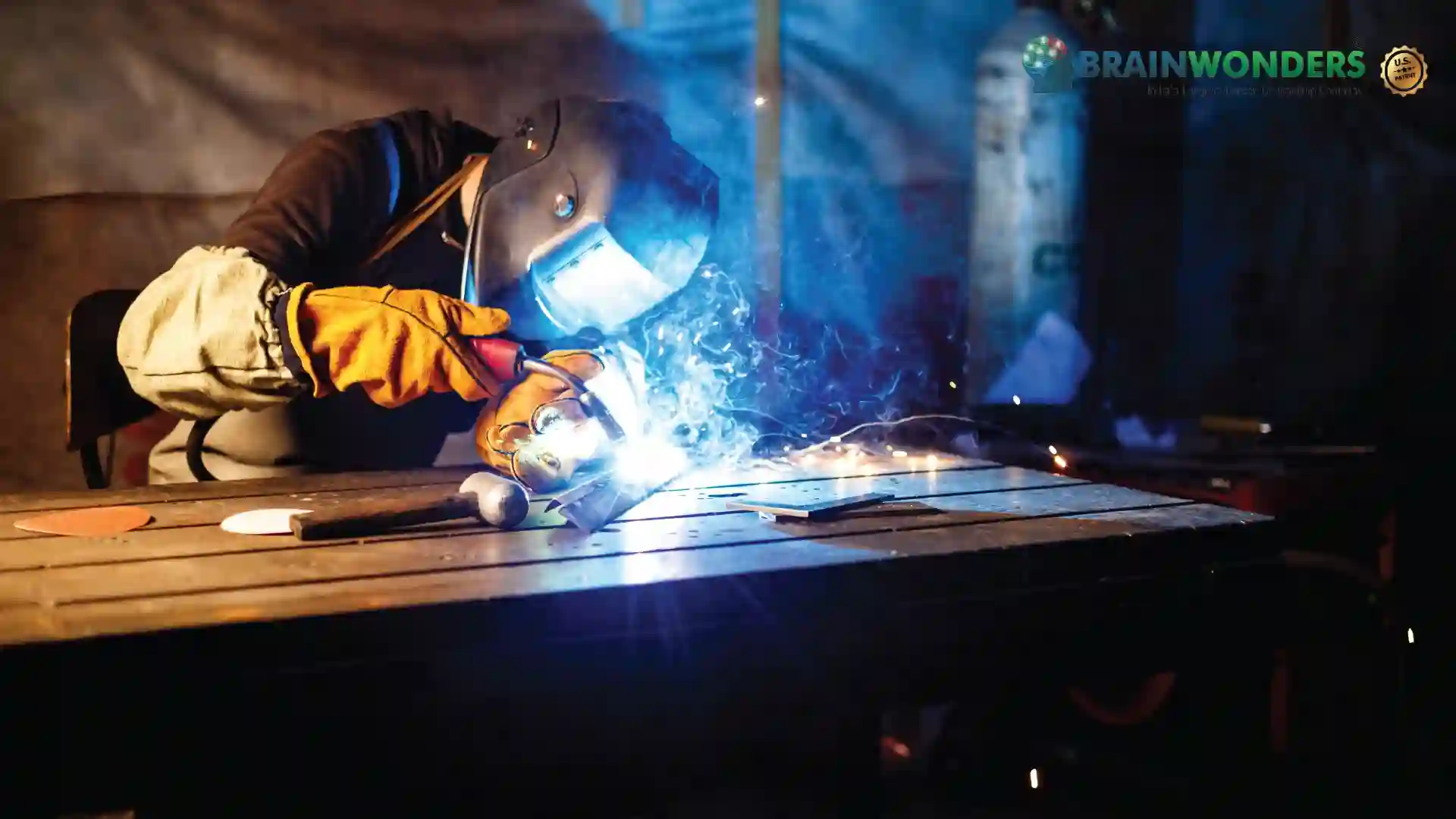How to become a Manufacturing Engineer
Overview, Courses, Exam, Colleges, Pathways, Salary

Overview
Who is Manufacturing Engineer ?
Manufacturing Engineering is an exceptional branch of engineering that is associated with investigating, analyzing and optimizing complex industrial, manufacturing and infrastructure systems. It is a thoroughly balanced combination of different fields of engineering such as mechanical, chemical, electrical, and industrial engineering along with an informed understanding of mechatronics, commerce, economics and business management.
A manufacturing engineer is a dynamic and skilled professional that works towards transforming raw materials into finished, new or updated products or systems in the most economic, efficient and effective way. These products or systems may be computer networks, machine tools, materials-handling equipment and even robots. Manufacturing engineering or industrial engineering (as referred to in some countries) aims to improve the production of an item, product or system through tweaking the product design or even developing better manufacturing processes.
The following article provides a more informed understanding of how to become a manufacturing engineer, what does a manufacturing engineer do and what degree do you need to become a manufacturing engineer.
Typical day at work
What does Manufacturing Engineer do?
The role of a manufacturing engineer is diverse and dynamic depending on the educational background, experience, skill set and area of specialization. Generally, it comprises of the following tasks:
- Automate a manufacturing facility through computer integrated technology
- Identify the most cost-effective material handling alternative
- Establish a better facility layout alternative for a manufacturing company
- perform cost-benefit analysis
- Design economic manufacturing processes to improve product quality
- Operate computer-aided design tools and software to design and produce products and systems
- Diagnosing faults in the product design and manufacturing process
Abilities and Aptitude needed
What are the skills, abilities & aptitude needed to become Manufacturing Engineer?
To flourish in the profession of manufacturing engineering, a manufacturing engineer must possess certain required skills and inclinations in addition to an appropriate educational background. Aspirants should be exceptional problem solvers with strong communication skills and an analytical mind. Manufacturing engineers also operate in very demanding work conditions that need both individual and team project work, which is why candidates must possess leadership qualities, teamwork abilities, and the ability to perform effectively under pressure. Manufacturing engineers must contribute a considerable amount of mathematics, creative, imaginative, and logical ideas to their work, and hence applicants must demonstrate these characteristics to some level.
Salary
Salary for Manufacturing Engineer?
As a Manufacturing Engineer, the salary can vary based on factors such as experience, industry, location, the size of the manufacturing facility, and the engineer's specific roles and responsibilities. Here's the information in the requested format for a Manufacturing Engineer in India:
- Minimum Monthly Salary: For entry-level Manufacturing Engineers or those working in smaller manufacturing setups, the monthly salary may range from INR 25,000 to INR 40,000, especially at the start of their careers.
- Maximum Monthly Salary: Experienced and highly successful Manufacturing Engineers, especially those working in large manufacturing companies or with specialized skills, can earn a maximum monthly salary of INR 1,00,000 to INR 2,00,000 or more.
- Annual Salary: The annual salary of a Manufacturing Engineer can be from INR 3,00,000 to several lakhs or more, depending on their level of experience, the complexity of projects they handle, and their expertise in implementing manufacturing processes and technologies.
- Highest Paying Job and Scope: The highest paying job for a Manufacturing Engineer is when they work with technologically advanced manufacturing industries, like aerospace, automotive, or electronics. Senior Manufacturing Engineers leading major projects or process improvements can command higher salaries and may receive performance-based bonuses. The scope for Manufacturing Engineers is promising, as manufacturing remains a critical sector driving economic growth, innovation, and job opportunities.Manufacturing Engineers are pivotal in designing, implementing, and optimizing manufacturing processes to enhance efficiency, quality, and productivity.
Pathways
How to become an Manufacturing Engineer?
Entrance Exam
Entrance Exam for Manufacturing Engineer ?
In order to enrol into a Bachelor’s program at an esteemed university, aspirants are expected to clear the JEE main and subsequently, the JEE Advance exam which makes the aspirant eligible to apply anywhere in India. It is a very difficult and challenging exam to crack that requires hard work as well as rigorous and consistent preparation. Some states have their own entrance exams that are admissible in their respective universities. Many educational institutes conduct their own entrance tests.
Courses
Which course I can pursue?
Best Colleges
Which are the best colleges to attend to become an Manufacturing Engineer?
Industries
Which Industries are open for Manufacturing Engineer?
Depending on one’s educational background, experience, and skillsets, aspirants may apply for the following manufacturing engineering jobs:
- Production manager
- Quality Manager
- Engineering manager
- Engineering Plant Production Manager
- Foundry Production Engineer and Manager
- Asst. Production Manager
- Production Engineer
- Management Engineer
- Production Support Engineer
- Operation Analyst
internship
Are there internships available for Manufacturing Engineer?
In any given field, along with theoretical knowledge, it is always an added advantage to get an on-ground experience that enhances the aspirant’s understanding of the domain. It is highly encouraged to take up an internship and gain exposure to the latest software and hardware tools, methodologies and technology and become fluent with industrial standards. Aspirants may seek internships while studying and even after graduation. Many education boards have made it mandatory to take up at least one internship during their degree program to better prepare the candidates for competence in the real world.
Career outlook
What does the future look like for Manufacturing Engineer?
Manufacturing engineering is an increasingly popular branch of engineering for many reasons, one of them being that it allows aspirants the opportunity to work for a variety of industries as manufacturing is not limited to only a few industries: it can range from critical medical devices manufacturers to electronics, pre-engineered building manufacturers and even aircraft engine manufacturers.
It allows aspirants to retain their creativity in a professional capacity after graduating, thereby producing tangible, concrete items they helped to manufacture or improve. Manufacturing engineers work on products that touch and improve the lives of people all over the world. The career outlook is very bright for manufacturing engineers as it is one of the economy’s most important industries.



